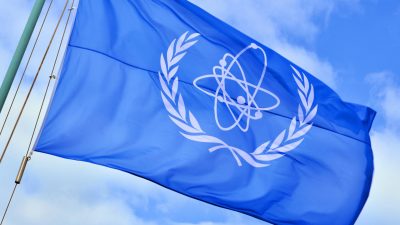US, Europeans Submit Anti-Iran Resolution to IAEA Board
Faults Iran for not satisfying questions on traces of uranium

All Global Research articles can be read in 51 languages by activating the “Translate Website” drop down menu on the top banner of our home page (Desktop version).
To receive Global Research’s Daily Newsletter (selected articles), click here.
Visit and follow us on Instagram, Twitter and Facebook. Feel free to repost and share widely Global Research articles.
***
The week-long IAEA Board of Governors meeting moved into its second day, with continued focus on Iran, and the US and European allies offering a draft resolution to the body condemning Iran.
The resolution takes aim at the least substantial and most widely discussed issue, the discovery of uranium traces at undeclared sites in Iran. The resolution echoes IAEA position that Iran has not satisfied their questions about the traces.
The uranium traces have been an IAEA topic for years, and Iran very recently turned over what they say were all the documents explaining it. The US was very keen to continue the IAEA inquiry, and subsequently the IAEA was not satisfied with what they were given.
Iran’s nuclear chief Mohammed Eslami issued a statement today questioningthe IAEA’s impartiality, saying they need to stop the infiltration of IAEA operations by Iran’s enemies.
Speaking of Israel, Prime Minister Naftali Bennett demanded Iran be sent a clear warning and threatened with a “heavy price” during the IAEA meeting. This is roughly in line with what Israel expects of most meetings.
Iran has expressed concern about IAEA monitoring amounting to de facto spying by Israel and others for years, and with Israel coming up with Iranian documents from spying operations. The undeclared sites themselves had their origin in Israel’s spying.
How much of a “price” the IAEA can inflict at this point is unclear, as the US seems to be backing away from Iran talks on its own, and absent a nuclear deal from those talks, Iran’s obligations are far more limited than the West hoped.
If anything this underscores what Israeli officials have been saying recently, that a nuclear deal with Iran, even a “bad” one, would be more desirable than no deal at all.
*
Note to readers: Please click the share buttons above or below. Follow us on Instagram, Twitter and Facebook. Feel free to repost and share widely Global Research articles.
Jason Ditz is senior editor of Antiwar.com.

